Interview with Author Stephen Clarke: Merde Just Got Real
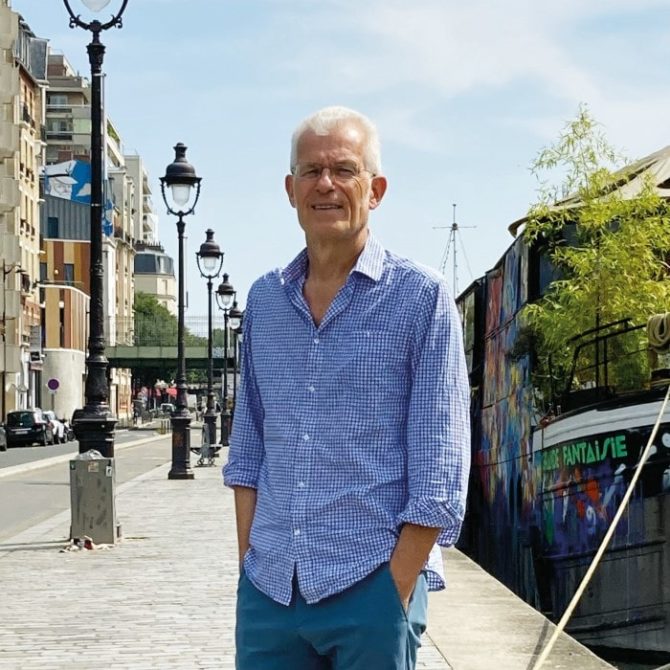
Best known for the popular Merde series, as well as his non-fiction works on Anglo-French history, British-born author Stephen Clarke has sold more than a million of his books worldwide. Now, with a new novel of a rather different kind just out, the Paris resident chats to Caroline Harrap about Brexit, Bond and breaking down stereotypes.
Amid the hubbub of his local café in Paris, Stephen Clarke is gazing into his espresso cup deep in thought. We are discussing how the protagonist of his best-selling book series, A Year in the Merde, might be getting on now, had he tried to move here post-Brexit. One thing’s for sure: he’d have a lot more paperwork.
“I’ve just never understood it, really,” says the British-born author who has lived in Paris for some 20 years. “We had a fantastic deal with Europe where we had access to the free market without having the Euro. Then there was the UK Rebate, the benefits to British businesses and, not least, freedom of movement.
“So, I’ve never been able to understand why anyone would want to get out of that. It’s just shooting yourself in the foot. It seems to me that it was basically just driven by old-school xenophobia whipped up by UKIP.”
Less than Rosy
“Now the UK has got all these problems with everything from the economy and the Irish border to empty supermarket shelves. Meanwhile, for those who want to move to France, it’s more complicated – whereas before it was all so easy.”
Well, easier than it is now, at any rate, though not without its challenges – something that the Merde series managed to capture so unflinchingly well. While some books in the genre have portrayed the whole ‘escaping-to-France’ dream through slightly rose-tinted spectacles, Clarke’s novels were closer to the often rather less rosy reality.
From navigating French bureaucracy and negotiating ‘tu’ and ‘vous’ to ongoing mishaps with dog-merde, the amusing exploits of ‘anti-hero’ Paul West touched a chord with countless Francophiles – enough, in fact, to fuel a series of six books. Now, for those who are missing their favourite tea-room connoisseur, there is good news. “I’ve actually just finished writing the first draft of a seventh Paul West novel,” reveals the 62-year-old. “And this one is all about how he gets on during the confinements and post-Brexit. I don’t want to give away too much, but it’s now with my agent, so watch this space.”
While he’s always played down any autobiographical aspect to the books, it’s fair to say there are at least some parallels with the author’s own experiences. Just like Paul West, Stephen Clarke initially moved to Paris to work for a French company – and, as he’s the first to admit, he made his own fair share of faux pas along the way – but there the similarities end. Unlike Paul West, who spent his early months here launching ‘My Tea is Rich’ (and, let’s be honest, hitting on Parisian women…), Stephen Clarke’s real-life story is a rather different one.
Fact and Fiction
Hailing originally from Bournemouth, on England’s south coast, Stephen studied French and German at Oxford University. After graduating, he then did a stint in Glasgow working for a dictionary publisher. However, when the opportunity arose to become a journalist for an English-language magazine in Paris – “well, you can’t argue with a 35-hour week” – he packed his bags and made the move to France.
Then, of course, came his series of hit novels, which would go on to sell more than a million copies worldwide, and the rest, as they say, is history. Quite literally, in fact. In recent years, Stephen has also proven his writing mettle with a string of books exploring the background to the Anglo-French relationship. Notably, his history tome, 1,000 Years of Annoying the French, topped the UK’s bestseller list.
Now, for his latest release, he has returned to his first love of fiction with the new comic novel, The Spy Who Inspired Me. Set in occupied France, the book is an affectionate spoof of the original James Bond books, but with something of a twist. It is based on the idea that Ian Fleming’s famously macho spy could, in fact, have been inspired by a woman. “I’ve always liked the James Bond books, as they’re really good adventure stories, but it has to be said that they’re also a little bit racist and very sexist,” says Clarke. “You can never rely upon the female characters as you can bet that they’ll always let you down. If there’s a beautiful woman, she’ll have to be rescued. If she’s a spy, she’ll betray him.
“So, I thought it would be fun to send the young ‘Ian Fleming’ – renamed Ian Lemming in the book – on a dangerous mission with a female undercover agent. That way, he could see what real women spies got up to in the war. It wasn’t all tuxedos, sports cars and champagne; the reality of spying was unwashed clothes, total discretion and the constant threat of being caught by the Gestapo. While it’s definitely a comic novel, it’s also a serious tribute to these brave women.”
Originally planned to tie in with the release of the new James Bond film, No Time to Die, starring Daniel Craig, the pandemic put paid to that when the movie was delayed until this autumn. However, frustrations over publishing schedules aside, the last year or so has proved to be a fruitful one for the author.
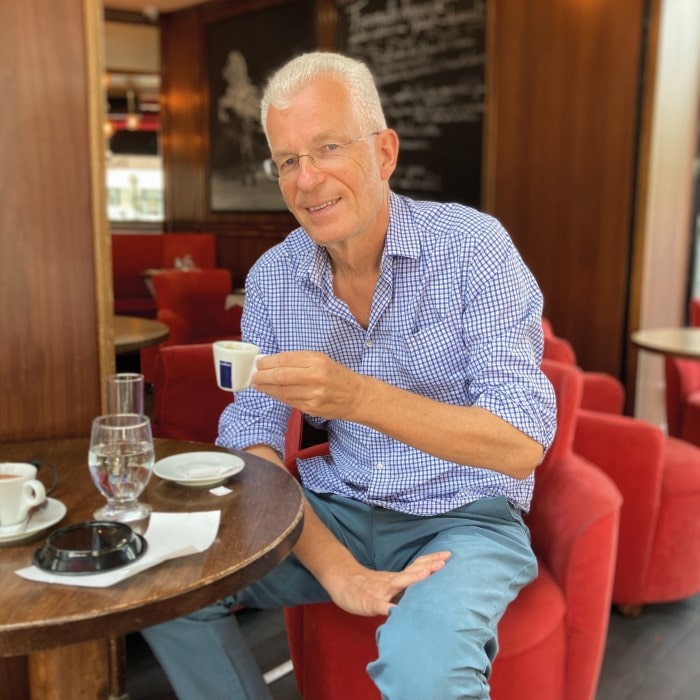
Stephen enjoys an espresso at his local café and says he is pleased to see a proliferation of pavement restaurants springing up as a result of Covid restrictions © Caroline Harrap
Creative Confinement
As well as working on the latest Paul West novel, he has also been busy with a new French translation of the first in the series. Then there’s his work writing for other people – which ranges from material for radio and lyrics for musicals to ghost-writing an autobiography for a female stand-up comedian. He’s even been giving the YouTube stars a run for their money with his own comic videos.
“For me, the various confinements have actually proved to be a very productive time,” says Clarke, who lives in the 19th arrondissement with his French partner. “For a writer, assuming you have somewhere quiet to go, being locked away with your computer means that you do actually tend to write. So, from that point of view, it’s been one of the most productive times I’ve ever had.
“Having said that, there’s not been much money about – and, obviously, the fear of dying of a horrible virus has been quite distressing. Then there’s all the anti-masking nonsense, which to me seems the height of selfishness, because wearing a mask just means you care about other people. And that’s not to mention the confusing messages from the various governments, so that’s been pretty traumatic. But, overall, I do feel very fortunate.”
Like many people on both sides of the Channel, Stephen was left particularly bewildered by the decision of the UK government to maintain the quarantine period for France. At the time of our interview [though later reversed], while other amber-list countries had had their quarantine restrictions lifted for the fully vaccinated, those travelling from France to the UK still had to isolate for up to 10 days.
“Was it a political decision to impose special treatment on France? Of course it was. I mean, in terms of politics, France has always been on Britain’s ‘Red List’ – and vice versa. As far as Britain is concerned, France is one of the countries that’s been annoying it over Brexit and the whole Irish border problem. So, yeah, as the Brits see it, France needs a slap in the face.
Age-old Rivalry
“Also, the French and British governments have been involved in a long spat over the AstraZeneca vaccine – France claiming the Brits were hoarding it, then Macron saying it was less effective. It’s been messy. So, this latest conflict over quarantine is just another manifestation of the endless rivalry between the two countries. As I write about in my books, we’ve been at each other’s throats ever since the Norman Conquest. Now we’ve just updated it to vaccines.”
On a brighter note, there’s certainly plenty to look forward to for those heading back to Paris after a hiatus. As well as the new Pinault Collection, the Musée Carnavalet has reopened after a major renovation. Then, for the shoppers, there’s the iconic department store, La Samaritaine, which has itself had an ambitious restoration. The capital is also undergoing something of an environmental revolution, with a vast network of additional cycle lanes, newly pedestrianised areas and significant greening of streets and rooftops.
“It does feel like a really transformative time for the city,” says Stephen. “Removing traffic from the centre of the city can only be a good thing. Also, because of the cafés being allowed to extend their terraces onto the pavements and parking spaces, that’s been an accidental traffic-calming measure. Of course, café terraces are something that Paris does really well, so it’s great to suddenly have more of these, and hopefully they’ll be allowed to stay. If we can just get through this transition phase, it will hopefully all be worth it.”
Back in Clarke’s own neighbourhood café, time is ticking on and it’s time for us to give up our table ready for the lunchtime rush – but not before leaving a generous tip for the waiter, of course. Paul West would be proud.
Stephen Clarke shares his five top tips for things to do in Paris away from the conventional tourist trail.
Go fish-spotting along the Canal de l’Ourcq:
Paris is a great city for walking and my favourite place for a daytime stroll, away from the crowds, is along the Canal de l’Ourcq. If you go from La Villette, towards the centre of Paris, it’s really lovely – and there are some nice places to eat and drink along there too. Because of the pandemic, there have also been fewer tourist boats, so the water in some places has become really clear. There are sections where you can even see fish and the weeds. There are also beautiful bridges, when you get nearer to République, which are a feature of old Paris. So, it’s a wonderful walk that feels very Parisian but with a hint of Amsterdam.
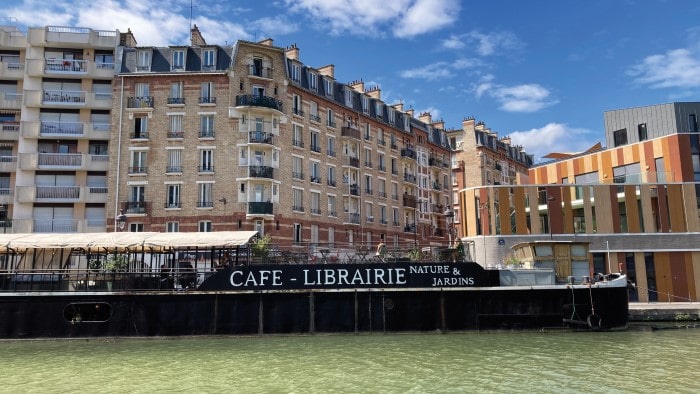
If the weather is good, following the Canal de l’Ourcq towards the centre of Paris makes for a lovely walk © Caroline Harrap
Seek out some quirky treasures in the Marais:
Paris’s history museum, the Musée Carnavalet, has recently reopened after a major renovation. It’s not as well-known as some of the museums, but it’s a fascinating place. I’ve not been back yet since the reopening, but they used to have a great section on the French Revolution seen from the perspective of everyday Paris. They had some weird things in there – such as children’s toys from the period like little toy guillotines – and it’s all very quirky. There was also another good section on the Siege of Paris from 1870 to 1871 – and the Commune – with wonderful paintings of things like people selling rats for food. So, it’s always been a really great museum on everyday life in Paris throughout history. It’s also a beautiful building, with lovely gardens, in a really nice part of the Marais.
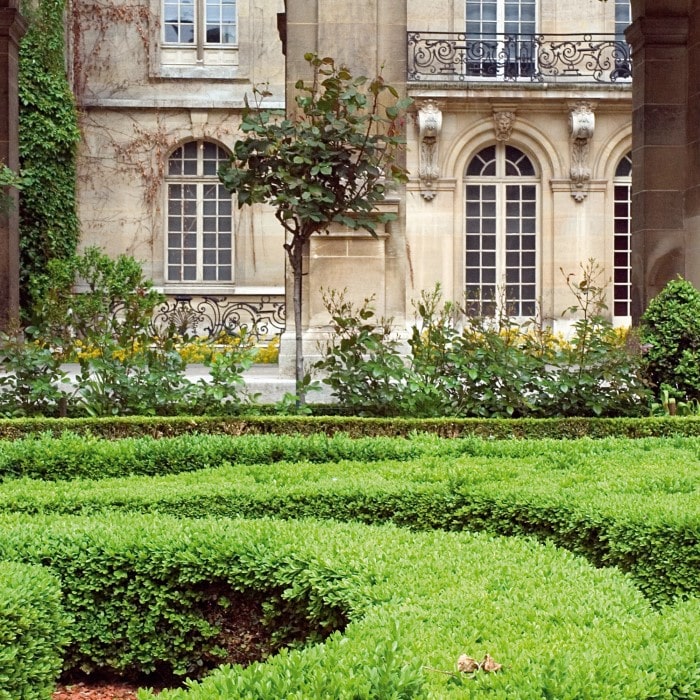
The gorgeous gardens of the Musée Carnavalet © Paris Tourist Office, Photographer Amélie Dupont
Enjoy a decadent Parisian Christmas tradition:
Another great time of the year in Paris is Christmas – especially for food-lovers. I mean, Paris is always a great place for food, but at Christmastime people go crazy. For my part, one of my favourite things to do, which is something of a tradition here, is to go and have oysters and champagne. I have friends who know exactly where to go to buy the best oysters – which have just arrived from L’île d’Oléron, in the south-west, or Brittany – and they’re not that expensive either. Even if you go to a restaurant, you can get a dozen for 10 or 12 euros or so, if you choose the place well. Or if you buy them at a shop, just get the fishmonger to open them for you, and have them at your hotel or Airbnb – a lovely and relatively affordable Christmas treat.
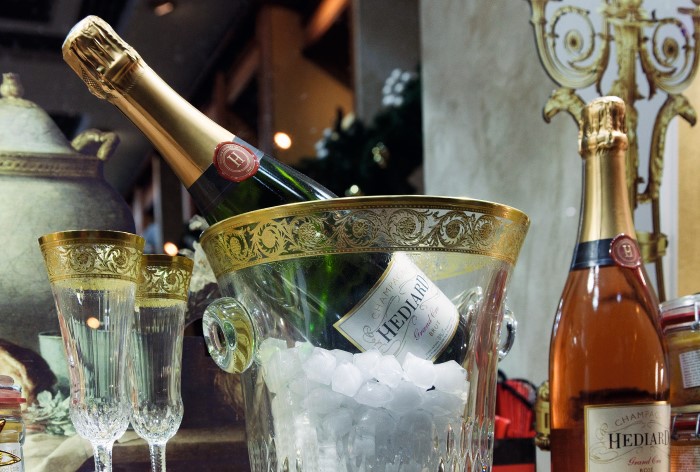
There’s nothing like Champagne and oysters at Christmas – indulge yourself! © Paris Tourist Office, Photographer Amélie Dupont
Take a mooch around Montparnasse:
I never used to like Montparnasse because it was where the tourists would go to drink bad red wine and think they were Hemingway, or one of the artists like Picasso or Modigliani – which was really very snobbish of me. But over the last few years, I have rediscovered the pleasures of going to one of those big Montparnasse brasseries where you can actually get a really good, cheap salad at lunchtime. Also, just behind there is one of my favourite little art museums in Paris, which is the former studio and home of Zadkine, who was an abstract sculptor. I mean, he’s not my favourite ever artist, but his work is very easy on the eye, and it’s just got a great feel of a tiny Parisian artist’s studio from the early 20th century that has been very well maintained.
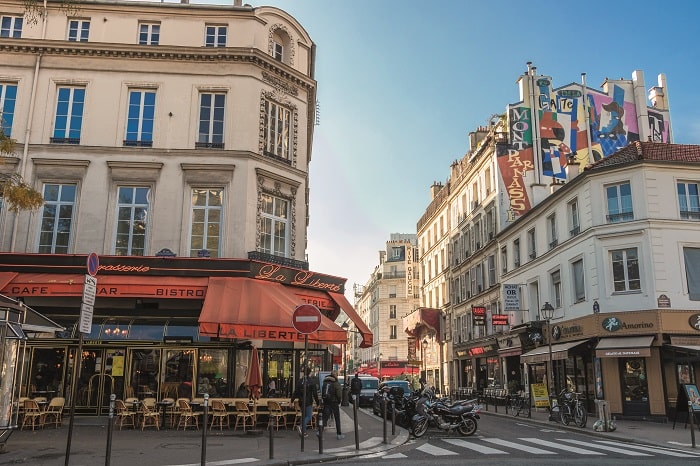
Make time for a spot of lunch at one of the many brasseries in Montparnasse © Studio TTG, Paris Tourist Office
Discover a hidden gem from history:
Last but not least, there is the oft-overlooked Chapelle Expiatoire, a lovely little garden and monument dedicated to Louis XVI and Marie Antoinette. Now I’m not necessarily a French royalist but I actually have quite a lot of sympathy with Louis XVI because he was a French king who did believe in change and he was trying to make things better for the people. If it hadn’t been for opportunist politicians taking over the French Revolution, and making it violent, he would maybe have been a good constitutional monarch. Anyway, this memorial is a strange, quirky little place, hidden away in the 8th arrondissement, and it gives you the impression of how France is sort of in denial about Louis XVI – shut away in this tiny garden with its small, rather sad chapel. But this also makes it quite a poignant place too.
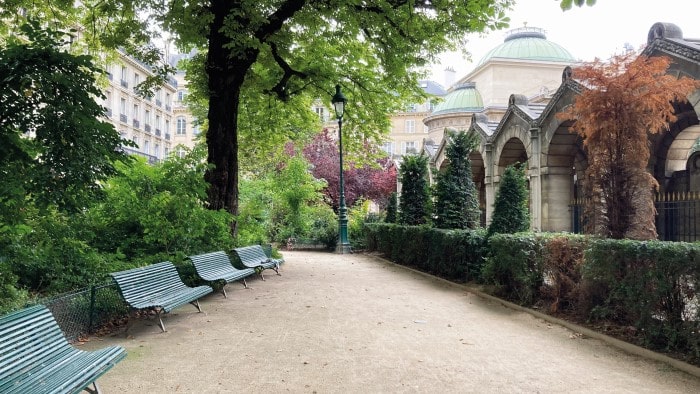
The peaceful setting of the Chapelle Expiatoire gardens and monument © Caroline Harrap
From France Today Magazine
Share to: Facebook Twitter LinkedIn Email
More in author, author interview, France history, Paris
Leave a reply
Your email address will not be published. Required fields are marked *



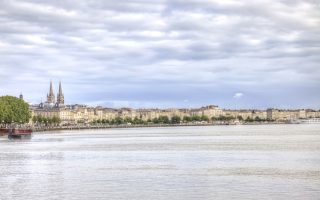
REPLY
REPLY
REPLY